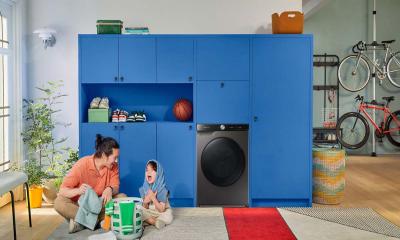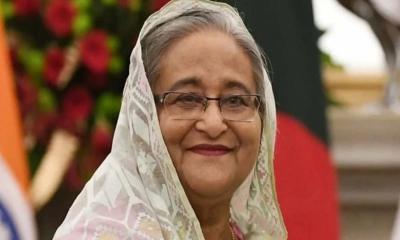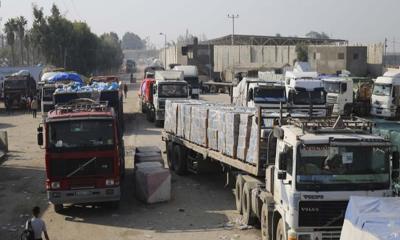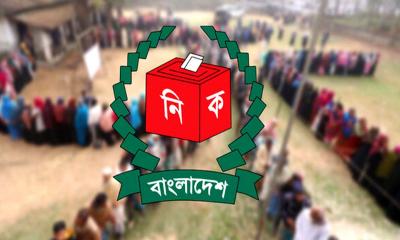- Electricity price increase in two steps
- Dollar & energy crisis create load shedding
- Commission increase at dealer level
- Entering the Uranium Age
- Energy in private sector
- Oil mine found in country
The power and energy sector started the year with two increases in electricity prices. However, one challenge after another started coming in this journey. In early summer, the dollar crisis and fuel shortages hampered power generation. The result is terrible load shedding. On the other hand, the Rampal power plant shut down seven times in the eight months it came into production. Due to lack of coal production of Payra thermal power station also stopped. Despite all these challenges, the entry of Bangladesh into the era of nuclear energy through uranium, the discovery of gas in the wells of Bhola and Sylhet and the discovery of oil again after 1986 - this sector has shown the light of hope.
Electricity price increase in two stages
At the beginning of the year, the government increased the price of electricity at the consumer level in two phases on January 12 and February 28. A 10 percent price hike in a span of two months creates additional stress in public life.
The price hike was done by effectively rendering the Bangladesh Energy Regulatory Commission (BERC) powerless. Experts questioned about this matter. Due to amendment of BERC Ordinance-2022 on November 30 last year, the government got the power to take decisions on related matters. However, before the price hike, BERC held a public hearing on the electricity price hike on January 8. Six electricity distribution companies proposed to increase the price of electricity. In that hearing, BERC's technical committee recommended a 15.43 per cent hike in electricity prices. However, before that hearing was over, the government increased the price of electricity by executive order.
In this context, Cab's energy advisor Shamsul Alam said that BERC was buried by increasing the price of electricity by the executive order of the power department. Accountability was ensured through the fixing of energy prices by BERC. But that culture of accountability was destroyed. By amending the Ordinance Act, the government took itself beyond its accountability. The consequences will be dire. The government will increase the level of suffering of the people by increasing the price of electricity and gas from time to time. It has already increased. This cannot be the character of any welfare-oriented state.
Load shedding rises for dollar and energy crisis
Due to the severe heat wave and the dollar crisis this summer, the country is facing severe load-shedding due to the inability to procure the necessary fuel. The shortfall in production compared to demand is close to 3,000 MW. About 53 out of 153 power plants remain closed due to lack of gas and energy. Adding to the shock was the shutdown of Payra power plant due to lack of coal.
Load-shedding became extreme when the plant's first unit of 1,320 MW capacity stopped production. To cope with the situation, the government reverted to oil-based (diesel-furnace oil) production. However, as the heat wave recedes in late June, the demand also decreases. As a result, the load shedding situation is normal.
Commission increase at dealer on energy level
In view of the long-standing demand, the government adjusted the oil price and commission increase at the level of fuel oil dealers in October. On September 26, the Ministry of Power, Energy and Mineral Resources published the gazette fixing the commission at dealer or agent level. In the gazette, the government fixed a commission of 4.28 per cent on octane, 4.34 per cent on petrol, 2 per cent on kerosene and 2.85 per cent on diesel.
But through this price adjustment, there was no change in the price of energy at the consumer level. At the consumer level, fuel oil prices remain unchanged as usual.
Entering the Age of Uranium
Bangladesh entered the era of nuclear power on October 5 with the transfer of uranium by Russia to the Rooppur nuclear power plant. Through this, Bangladesh ranks as the 33rd member in the list of countries with nuclear power in the world. It is expected that from the beginning of 2025, the much desired electricity will be available from Rooppur.
Rooppur nuclear power plant is the largest single project in the country financially. Russia is lending 90 percent of the project under construction at a cost of around Tk1 lakh 14 thousand crore . It is to be repaid within 28 years. The construction of the power plant is being carried out by the contractor Atomstroy Export under the overall supervision of Rosatom. So far the work progress is about 74 percent. Two thousand 400 megawatts of 1200 megawatts in two units will be available from here.
Permission to sell energy oil to the private sector
On November 15, the government issued a policy titled 'Establishment of Refinery at the Private Level, Crude Oil Imported Storage, Processing, Transportation and Marketing Policy - 2023', linking the private sector to the policies related to crude oil import, refining, marketing and storage. In the existing policy, the state had sole control in these cases. Through the issuance of the policy, the private sector is also given the opportunity to import, refine and market fuel oil.
At present, the state-owned Eastern Refinery has sole capacity to refine energy. And the power of oil import and marketing rests with the state-owned Bangladesh Petroleum Corporation (BPC). However, after setting up private sector refineries, the two companies will lose the single market for oil import, refining and marketing.
Government provides special opportunities to encourage investment in the private sector under the policy. BPC will buy 60 percent of diesel, petrol, octane, jet fuel, furnace oil in the first three years after the start of marketing of the produced fuel oil. The state-owned company will buy 50 percent of refined fuel oil in the next two years.
According to the policy, diesel, octane, petrol, jet fuel, furnace oil produced in private refineries must be supplied to BPC at the government-fixed price of 60 percent of the total fuel oil produced for the first three years after the start of marketing. The remaining 40 percent of fuel oil can be sold under its own management and through its own registered marketing network. However, if a private refinery is unable to sell the remaining 40 percent oil due to lack of sales network, it can sell any amount to BPC. BPC should be informed about this two months in advance and BPC will contract to purchase it as per its requirement.
In the next two years, private refineries will be able to sell a maximum of 50 percent of their produced oil under their own management. Or BPC and private refinery will determine the amount through purchase and sale agreement. However, if there is no demand from BPC, private refinery owners can also export refined fuel oil abroad subject to the organization's no-objection.
Oil find in country
Mineral resources in Bangladesh generally do not produce oil. However, after 1986, on December 8, oil was seen again on the country's soil.
Oil was found in the first level of four levels of Sylhet No. 10 gas well. After the tests, it is known that there are about 8 to 10 million barrels of oil in this well, the value of which is Tk7 thousand crore . At least 500 to 600 barrels of oil can be extracted daily. Bangladesh University of Engineering (BUET), Eastern Refinery Limited (ERL) and Sylhet gas field are testing the obtained oil. 43 to 100 billion cubic feet of gas has also been found in three other layers of the same well. Which will take the country's oil and gas exploration process to a new level.
In this context, Minister of Ministry of Power, Energy and Mineral Resources Nasrul Hamid said that earlier some oil used to come with our gas. Now the oil has separated. If we can extract our own oil, that is good news for us.
About 37 years ago in 1986, the first mineral oil was found in the gas field of Haripur. In 1994, after extracting a total of 560 thousand 869 barrels of oil in seven consecutive years, the flow from the well stopped. After nearly four decades, Sylhet gas field again found the presence of precious mineral oil.
ARS















